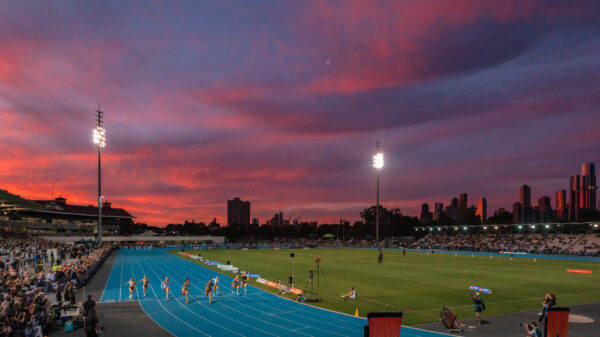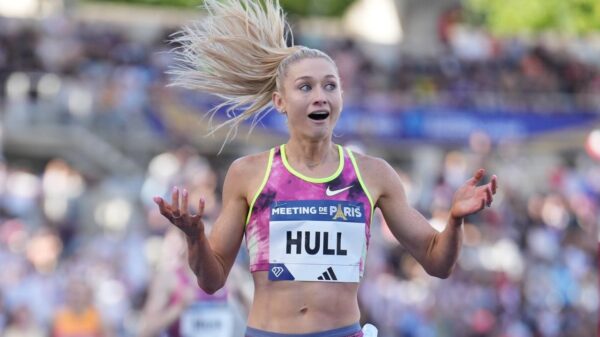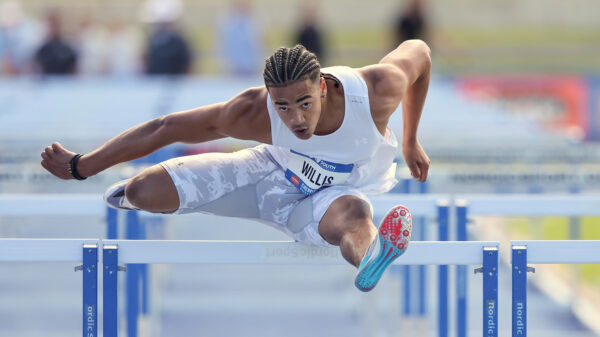The Oceania Championships have always been about providing opportunity.
The opportunity has traditionally been providing an level of competition for developing athletes from Pacific Islands to aspire to.
But under the IAAF’s World Rankings system, which will be the main way Australian athletes qualify for selection for the Tokyo Olympics, the opportunity was for scoring valuable points.
It was an opportunity many grasped with both hands. We’ll run through some of the performances that caught our eye, where athletes have established a strong start to their Tokyo qualification campaign.

Kelsey-Lee Barber now doesn’t need to worry at all about the intricacies of the World Rankings; she hit the IAAF Entry Standard with a personal best throw of 65.61m. She was the only Australian to do so at the meet, and one of only four Australians so far in in-stadia events (following Jessica Hull’s fantastic 1500m performance overnight at the Prefontaine Classic).
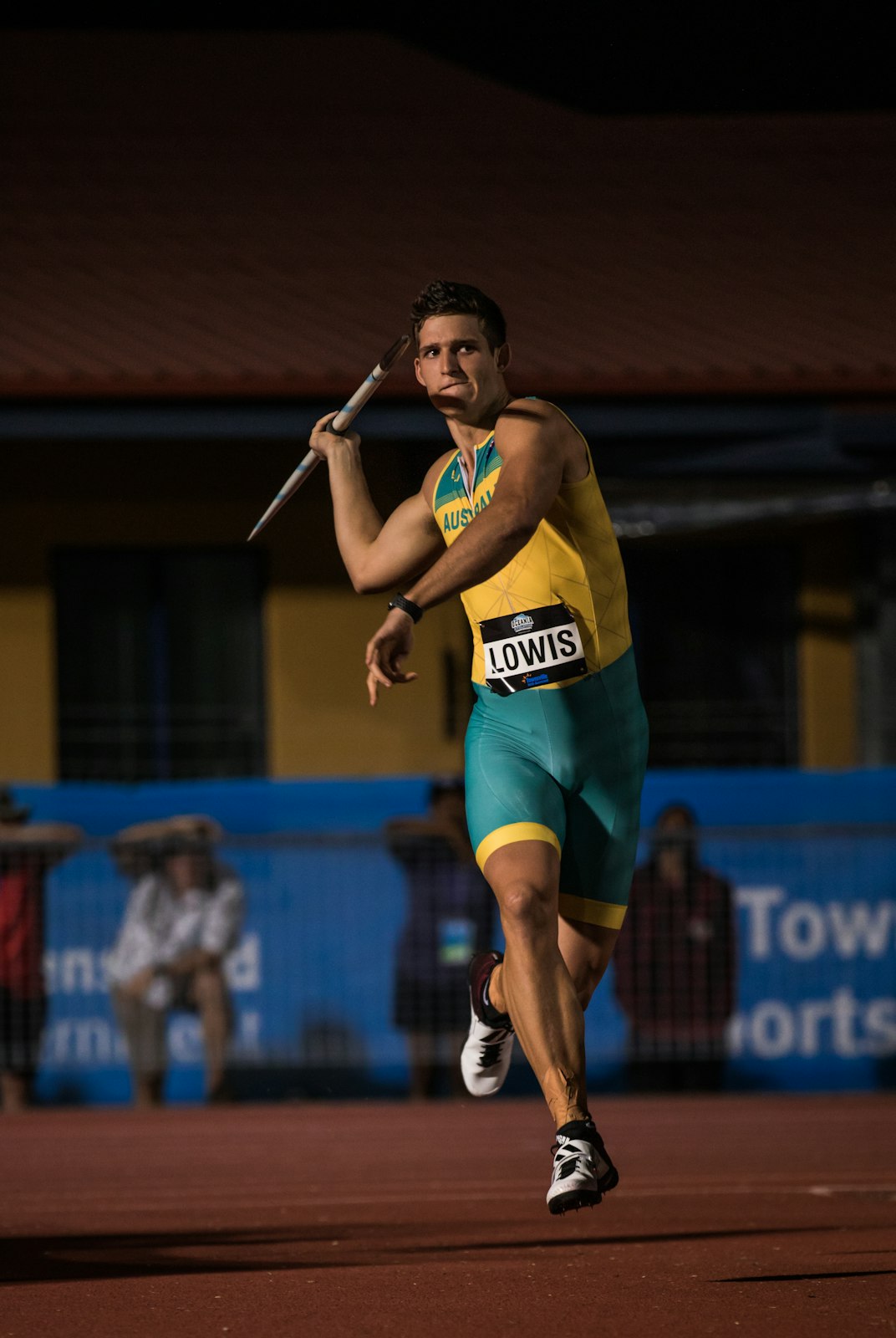
Sticking with the javelin throwers, Nash Lowis made the most of his home track advantage, taking gold with a throw of 79.10m. The 19-year-old was less than a metre short of his personal best of 80.10m set last month, and scored a huge 1258 points as a result (1088 points for the performance and 170 points for the place).
As a comparison of the average of his best five performances that Lowis might expect over the next 12 months to clinch a qualifying position for Tokyo, based on performances over the past 12 months internationally (see our Oceania Championships preview for more info) the cut-off was 1113 points. Assuming that cut-off, Lowis would only need to average 1077 points across four further meets, which would be the equivalent of:
* Winning Nationals and another ‘Category B’ meet with throws of 71.23m; and
* Winning two ‘Category C’ meets with throws of 74.05m.
In second was Liam O’Brien, with a throw of 77.32m being worth 1208 points. It moved him past Hamish Peacock as the top Australian in the event on the current IAAF World Rankings (1131 points).
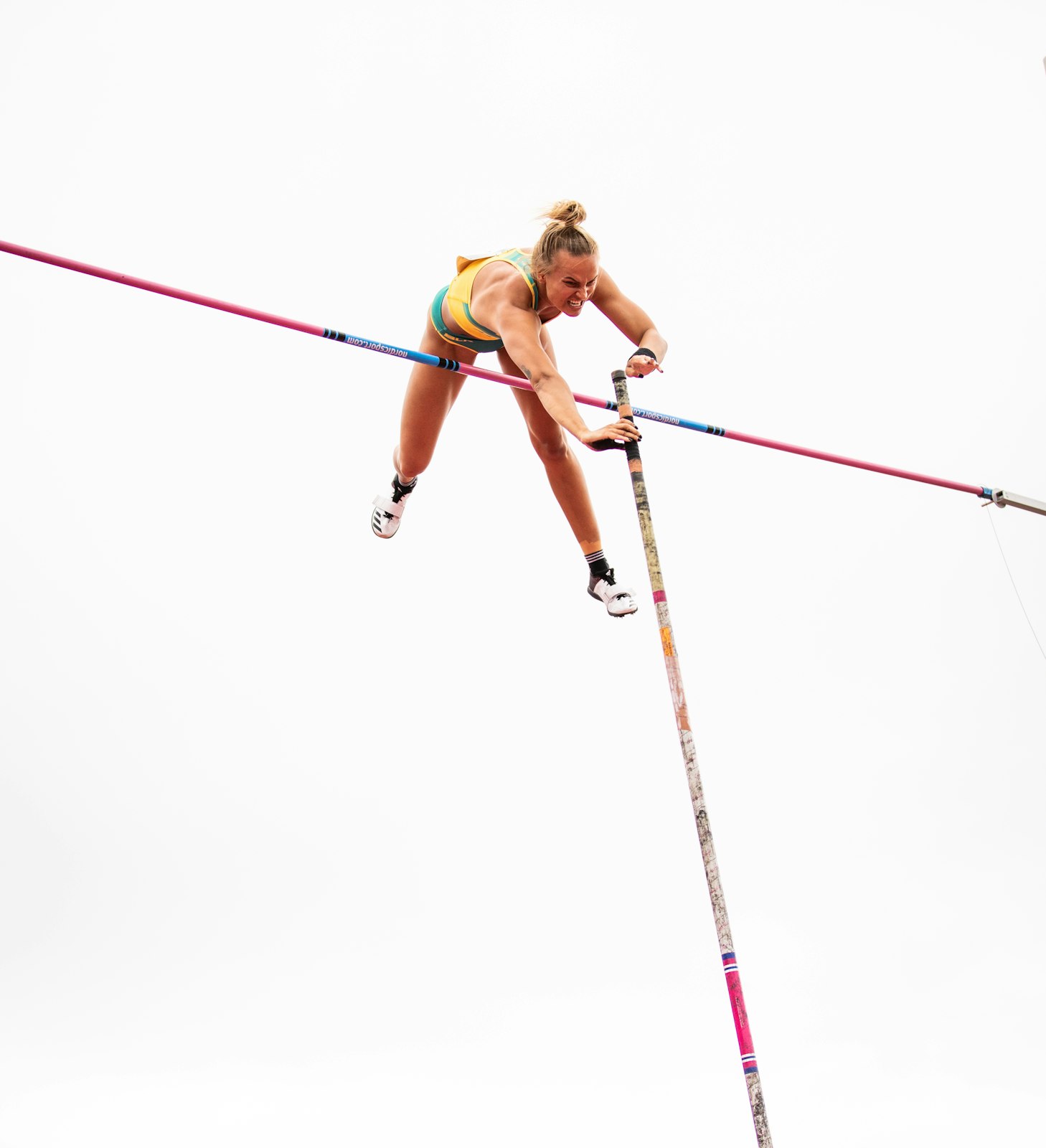
Elizaveta Parnova set a new personal best and surpassed the qualifying standard for the world championships this year in Doha, with a leap of 4.60m. The jump moved her past her aunt, Tatiana Grigorieva, to equal fourth on the Australian all-time list.
It was also worth a whopping 1315 points towards Tokyo qualification, although the Entry Standard of 4.70m is certainly within the 25-year-old’s reach
On pre-Oceania Championships rankings Parnova was 25th on a three-per-nation basis over the past 12 months. With a quota of 32 athletes for Tokyo, Parnova is well set to be within that number, given that 32nd spot only required 1096 points across their top five performances.

On the same three-per-national analysis of the past 12 months Angus Armstrong would have just missed a quota place by one spot, with his Ranking Score being 1172 points and the cut-off 1179 points. With his 5.40m win in Townsville worth 1272 points, he is positioned well to chase a qualifying position.
Second place Stephen Clough also scored valuable points, with his 5.30m leap being worth 1220 points.

Turning to action on the track, the revelation of the domestic season, Catriona Bisset, continues to produce the goods. Although not one of her fastest times, her front running win in 2:02.16 scored a massive 1294 points. As a comparison highlighting the extreme weighting to places at the Oceania Championships, Bisset’s previous two highest scoring performances (neither of which count towards Tokyo due to being outside of the ranking period) were 1254 points for her 2:00.48 win at the Australian Championships and 1181 points for her personal best 1:59.78 win at the Australian University Games.
On modelling from the past 12 months 1148 points would gain a quota position, so even Morgan Mitchell‘s 2:05.02 third place – not normally a time that would be considered significant – scores her 1204 points, which exactly matches her highest scoring previous performance from her 2:01.60 third place at the Australian Championships.
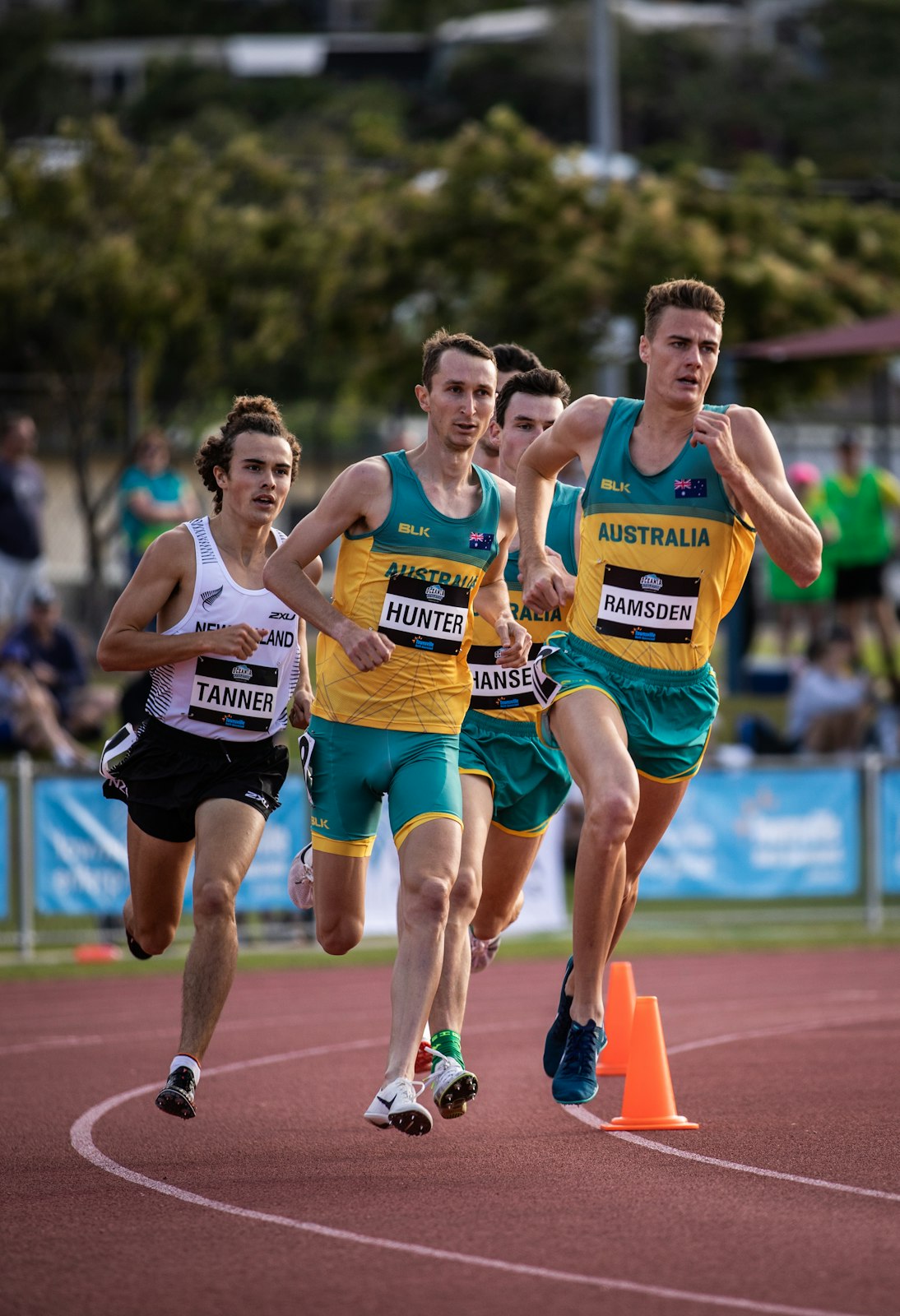
If it hasn’t hit home yet, the placing points that were on offer at the Oceania Championships were so high that the level of performance almost didn’t matter. So even a tactical 1500m final, where Matthew Ramsden ran a 55 second final lap to win in 3:44.41, ends up being his highest scoring performance ever, worth 1218 points. By comparison, his personal best of 3:35.85 in winning a meet in Lahti, Finland, was only worth 1178 points.
In the men’s 1500m gaining a qualifying position won’t be as difficult as gaining selection, with six runners under the quota cut-off score of 1115 points based on last year’s modelling: Ryan Gregson, Jordan Williamsz, Matthew Ramsden, Oliver Hoare, Luke Matthews and Rorey Hunter. Hunter made a good start to ensuring he achieves a score to put him in contention, with his second place in 3:44.67 worth 1190 points. In fourth place, James Hansen recorded 1136 points with his 3:46.90 fourth place.
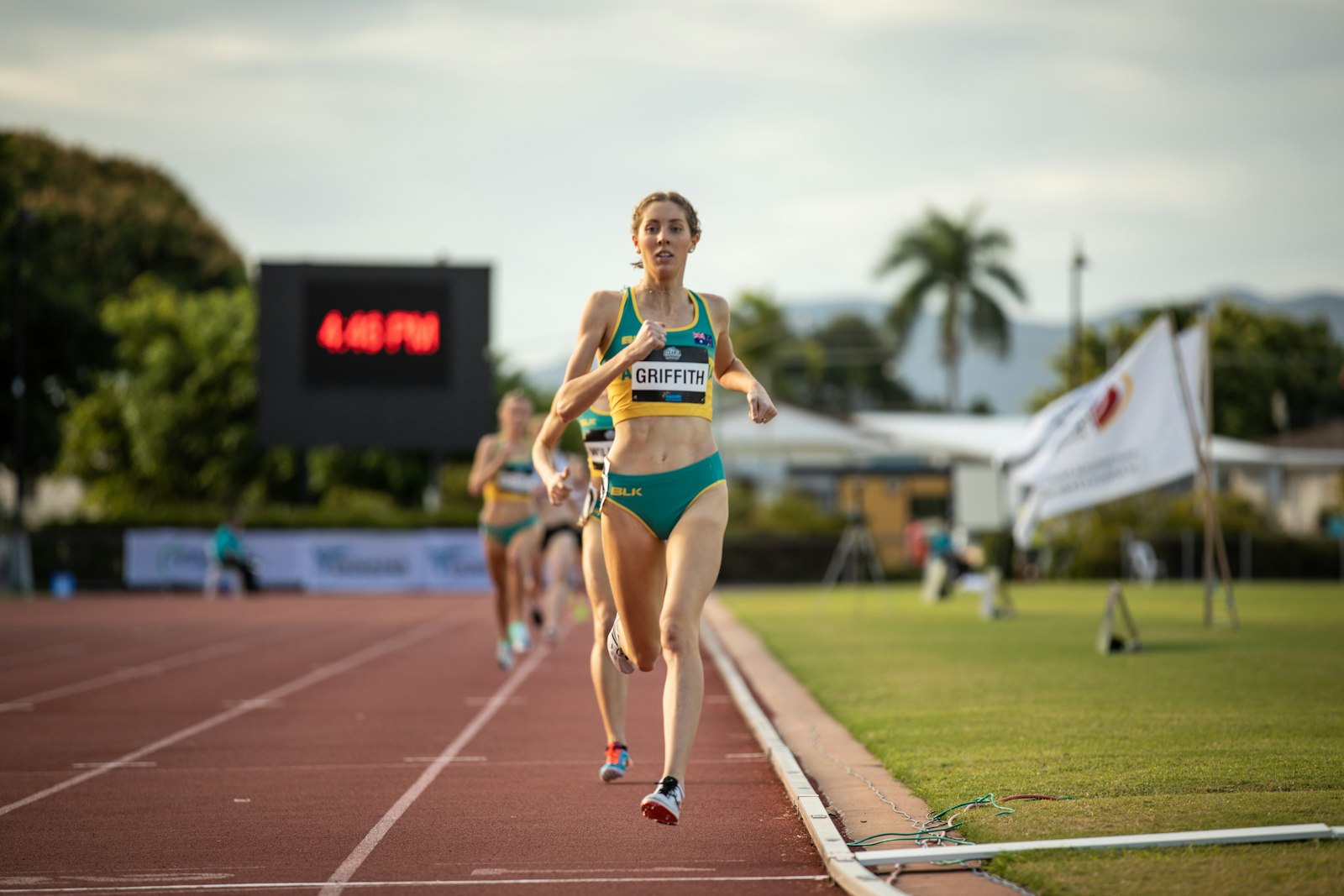
With a solid 4:12.53 win Georgia Griffith amassed a huge 1277 points, while second placed Bernadette Williams ran a two second personal best with 4:13.52, worth 1244 points. It positions the West Australian in the race towards a quota position (1108 points required on modelling from the past 12 months). Like the men’s event, qualification won’t necessarily secure selection, with Jessica Hull in possession of the Entry Standard and Linden Hall on the comeback trail from injury.
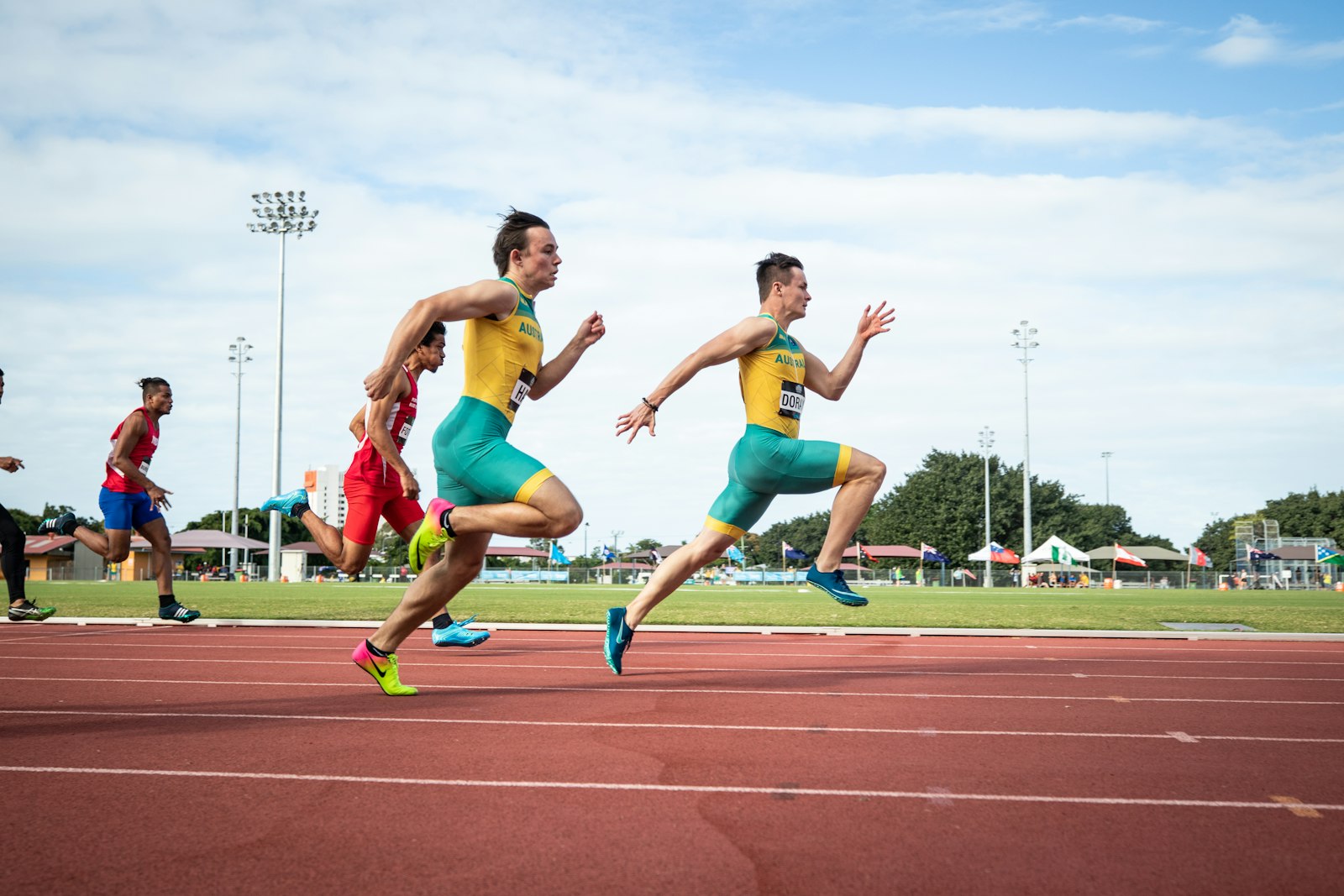
Jake Doran made the most of the opportunity presented by the meet, putting him in pole position in the early stages of the qualification race. With second place in 10.39 seconds behind New Zealand’s Ed Nketia‘s winning time of 10.34 seconds, Doran recorded 1221 points.
Jack Hale was third in 10.51 seconds, which is worth 1167 points.
With the 100m cut-off being 1158 points from results over the past 12 months, Doran’s performance is significant. From a point scoring perspective it is the equivalent of running 10.25 seconds to win nationals, or 10.13 seconds to win a Category C meet like the Sydney Track Classic. Such performances are within the reach of Australia’s top sprinters, but can one of Doran, Hale or Rohan Browning be dominant enough over the domestic season to win all of the time to maximise their placing points? Assuming no, the early points that Doran has in the bag could be very valuable indeed.
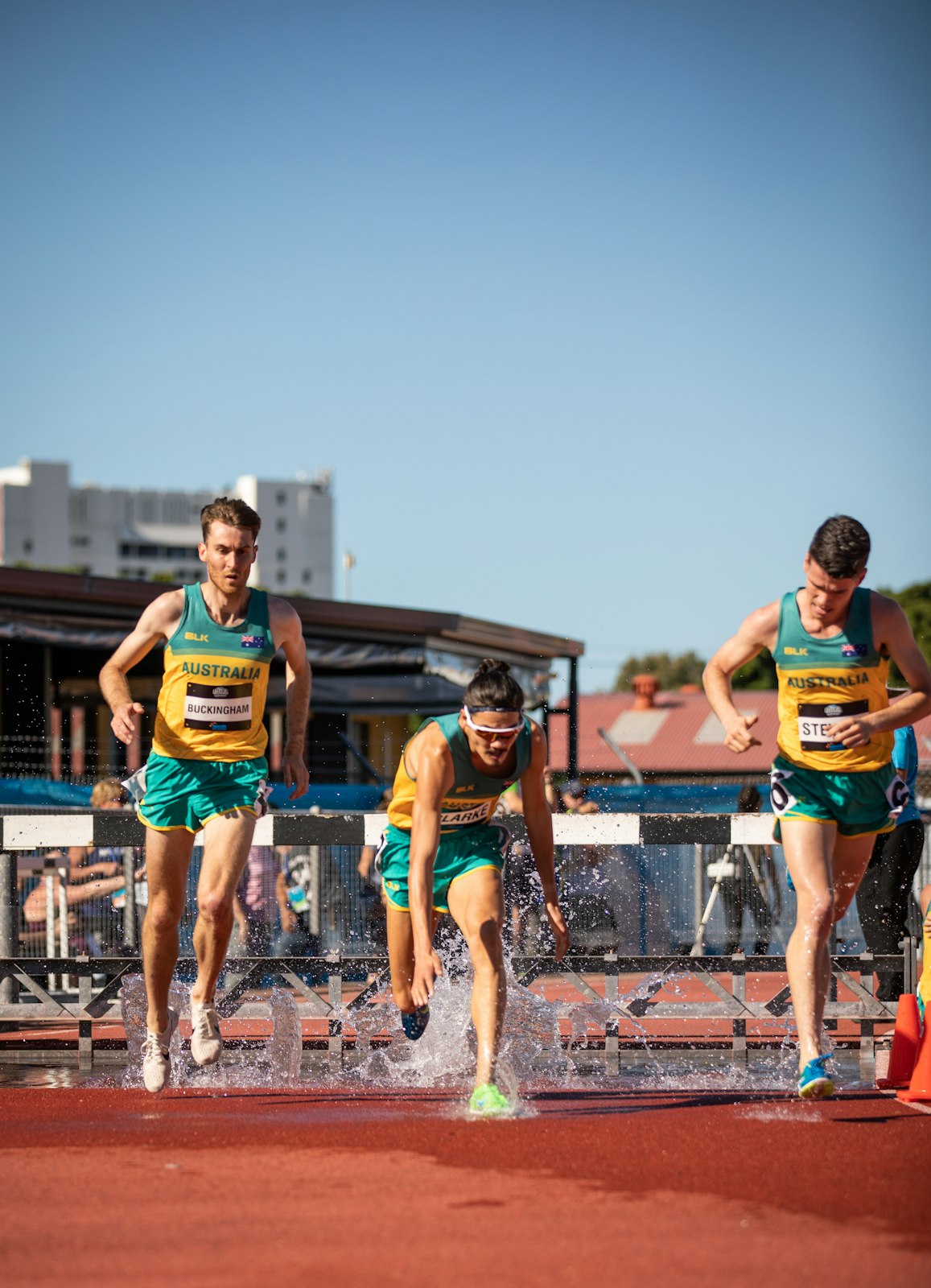
Some strong depth currently in the 3000m steeplechase was on show in Townsville, with Ben Buckingham making the most of the point scoring opportunity in the event, where only three performances contribute to the Ranking Score.
Buckingham earned 1224 points for his win in 8:41.15, with Max Stevens (8:43.22; 1200 points) and Matthew Clarke (8:45.12; 1176 points) taking the minor medals. On analysis of the past 12 months only 1104 points was required for a quota position… could Australia be on track to have three male entrants in the 3000m steeplechase at an Olympic Games for the first time since the 1956 Games in Melbourne?
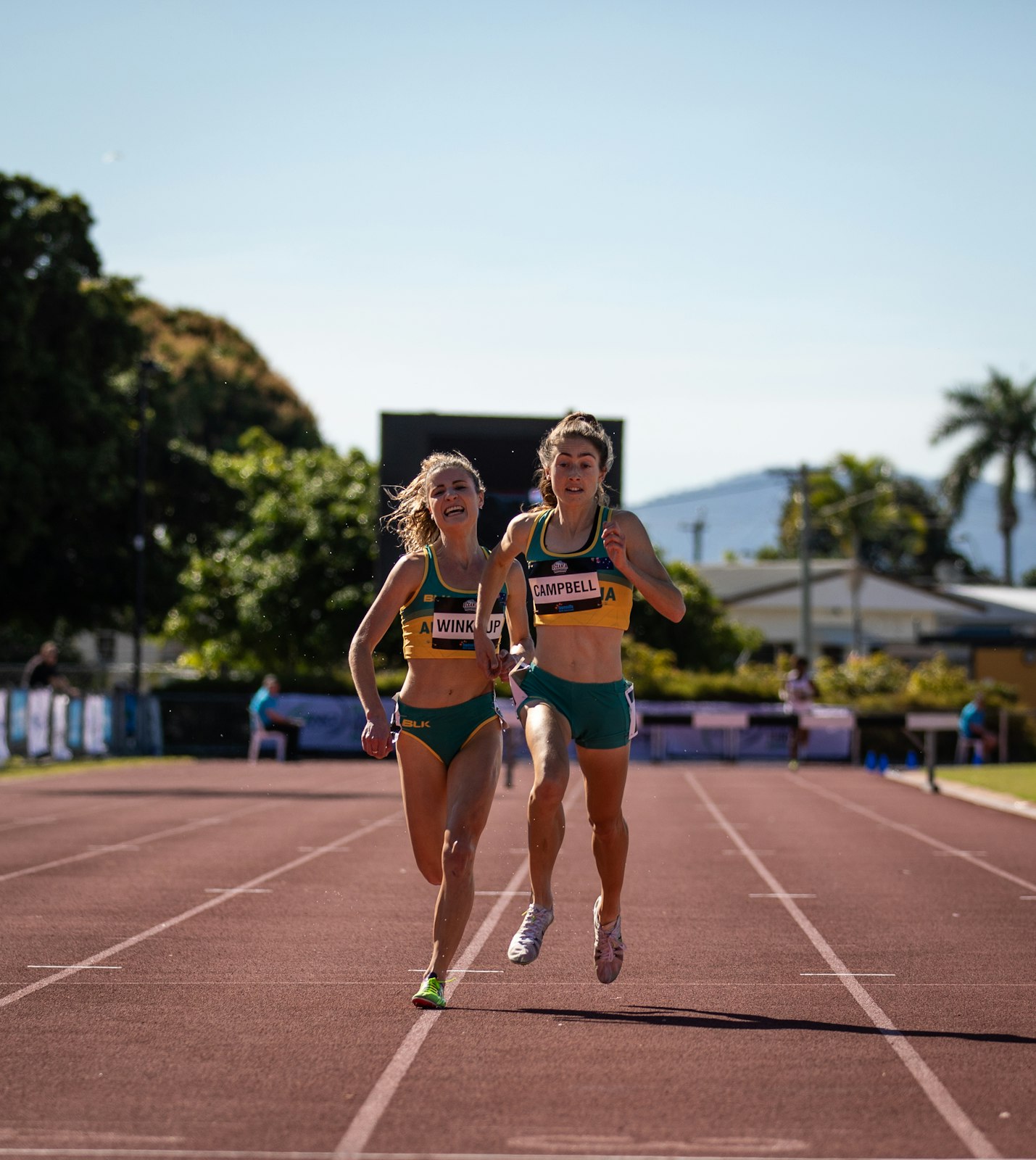
Not to be outdone – in fact, far from it – Paige Campbell and Georgia Winkcup staked their claims in the women’s race. In a close finish Campbell took line honours in 9:46.40 (and with it 1278 points) while Winkcup set a personal best by just short of 30 seconds, skyrocketing to from 24th to 8th on the Australian all-time list with a run of 9:46.51 (worth 1263 points).
Modelling from the past 12 months suggests a performance of 1104 points for a quota position.
Campbell also scored valuable points in the 5000m in finishing second to Melissa Duncan (15:41.44) in 15:46.25. Duncan’s performance was worth 1234 points and Campbell’s 1210 points, against a quota cut-off of 1091 points from the past 12 months. Put differently:
Melissa Duncan’s 15:41.44 is worth 1235 points (1085+150) – equivalent to running 14:23.68 (will likely bump her to 17th on the world rankings).
Campbell’s 15:46.25 becomes ‘worth’ 14:35.76 (1211pts).
Clever folk taking advantage of Oceania points, which freeze thru to Tokyo.— Sean Whipp (@seanwhipp) June 25, 2019

Despite the warm Townsville conditions, Ellie Pashley and Sinead Diver targeted a fast time in the women’s 10000m. The 10000m is relatively unique when it comes to the World Rankings, with only two performances required (one of which can be in the ‘similar’ event of 5000m) and an 18 month qualifying period.
Due to these differences the 10000m may be more volatile year-on-year when compared to other events, and the analysis of the past 12 months (suggested a quota cut-off of 1158 points) perhaps less reliable. That said, Diver’s 32:25.85 win (worth 1226 points) and Pashley’s 32:29.08 for second (worth 1204 points) are very valuable. Equivalent point scoring marks for first and second at Zatopek would be 31:30.25 and 31:43.72.
Of course, both athletes have the marathon Entry Standard under their belts from PB runs earlier in the year of 2:24.11 in London and 2:26.21 in Nagoya respectively.
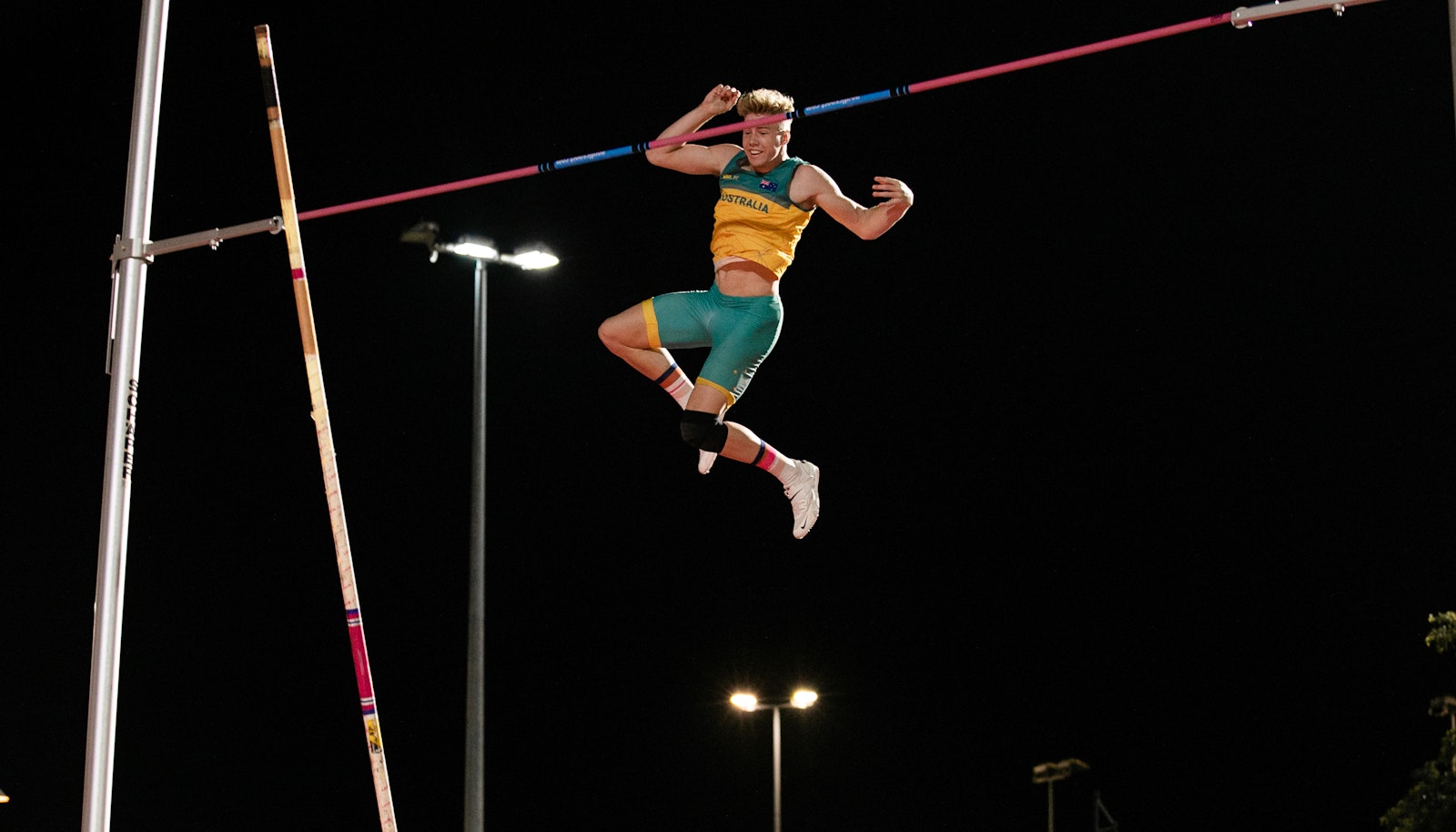
Ashley Moloney, just 19, recorded his second 8000 plus point score in the space of a month, as did training partner Cedric Dubler. Moloney was the victor on this occasion, with 8103 points – breaking his own Australian junior records – while Dubler recorded 8031 points.
Like the 10000m, the decathlon only requires two performances for a ranking over an 18 month period. Moloney and Dubler are well positioned to gain quota positions, with still 12 months to go in the qualifying period:
- 1192 ranking points required on a three-per-national basis for a top 24 quota position in the 18 months prior to the Oceania Championships;
- Ashley Moloney: 1192 points (average of 1252 points from Oceania Championships and 1132 points from Gotzis)
- Cedric Dubler: 1208 points (average 1221 points from Oceania Championships and 1195 points from Gotzis)

Henry Smith pulled out a final round jump of 7.91m to take victory in the long jump, worth a huge 1288 points. His ranking score prior was 1188 points, with a best score of 1216 points from winning Nationals in 7.90m. Form and fitness pending, Australia could have three athletes qualify for Tokyo with Henry Frayne and Darcy Roper in the mix, but Smith has the proverbial ‘runs on the board’ as the qualifying period commences.
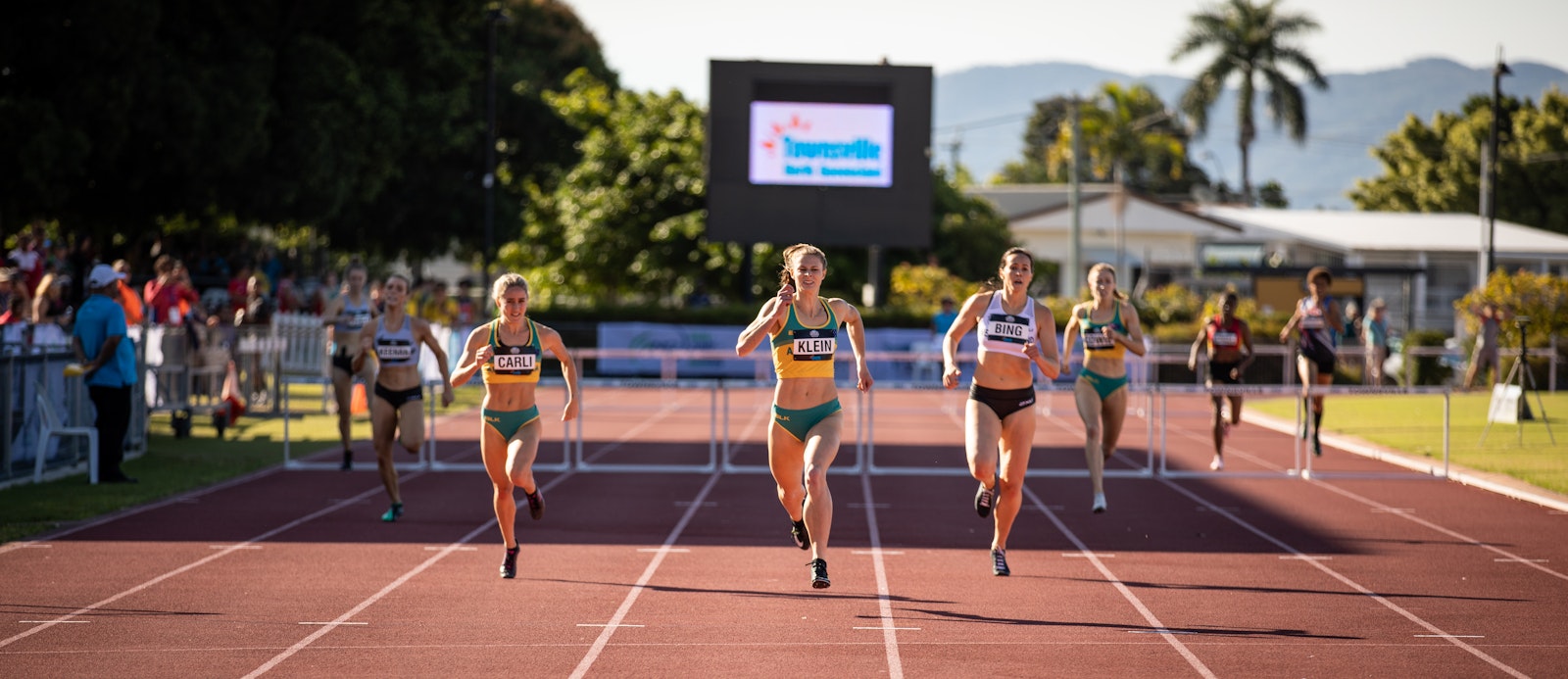
Sara Klein ran a personal best of 56.07 seconds to fall just short of the qualifying standard for the world championships in Doha (56.00s), but recorded a valuable 1309 points toward Tokyo qualification. With a quota cut-off of 1144 points from the past 12 months, and Klein having a ranking score of 1153 points prior to Townsville, the 25-year-old is now just four solid runs away from becoming an Olympian.
Similarly, Sarah Carli amassed 1264 valuable points with her second place finish of 56.72 seconds.

A consistent comeback this season by Riley Day has the teenager poised for fast times and Olympic selection next year. Although her winning time in the 200m of 23.51 seconds was more than half a second outside of her personal best of 22.93 seconds, it was in less than ideal conditions and comes following a series of 11.5 second clockings over 100m this year.
With the win the run was worth 1254 points, with the past 12 months suggesting that 1104 points would be required for a quota spot for Tokyo in the event.
Full results from the Oceania Championships are available here.



